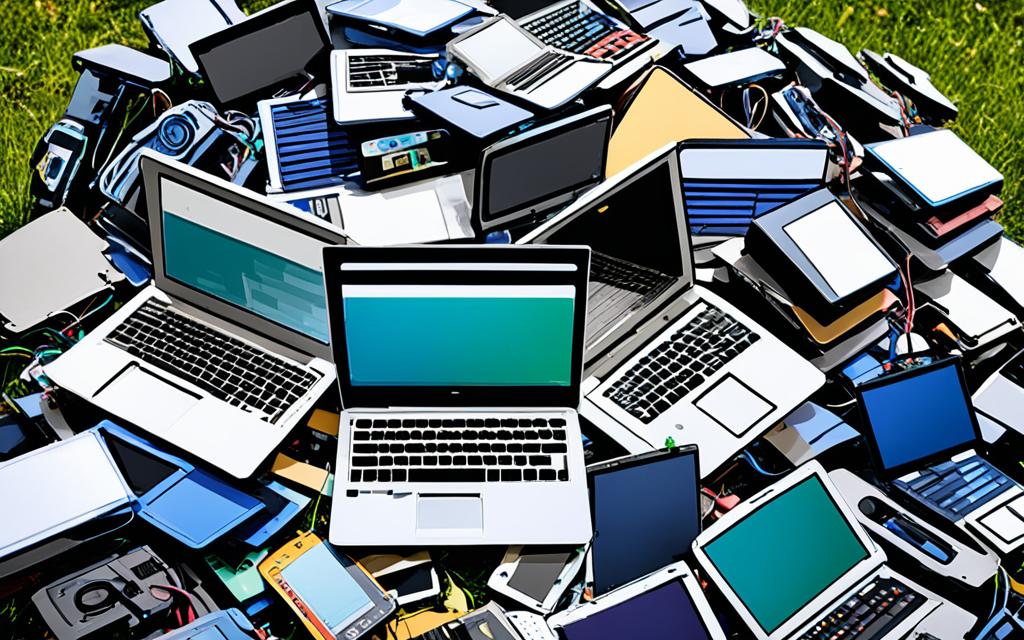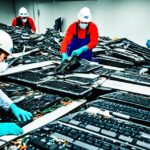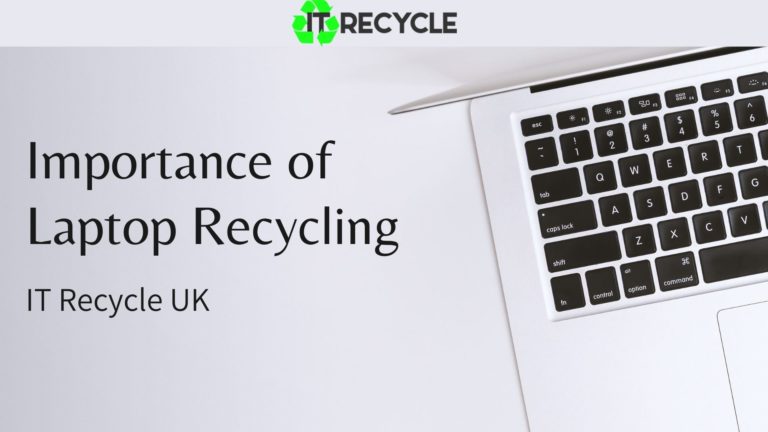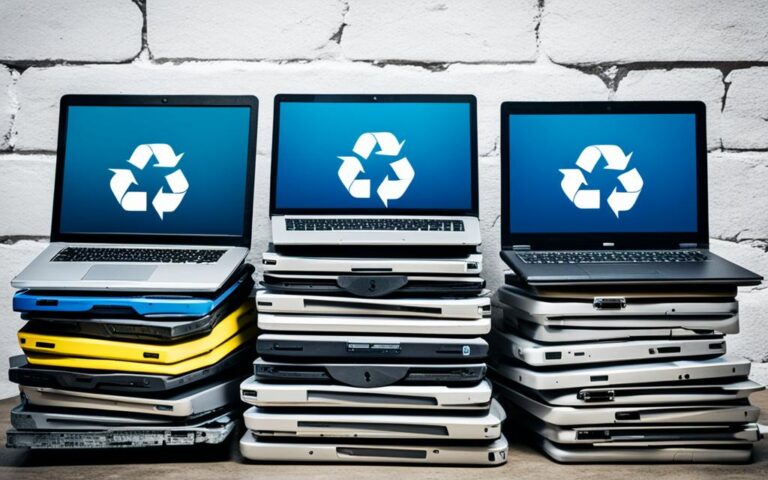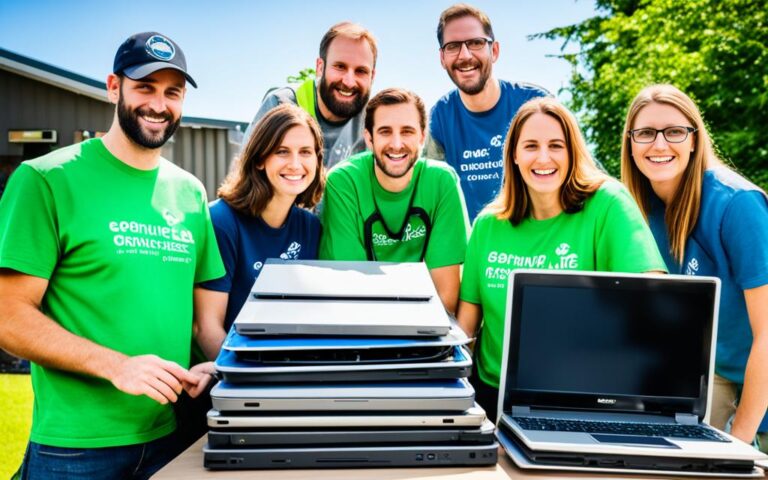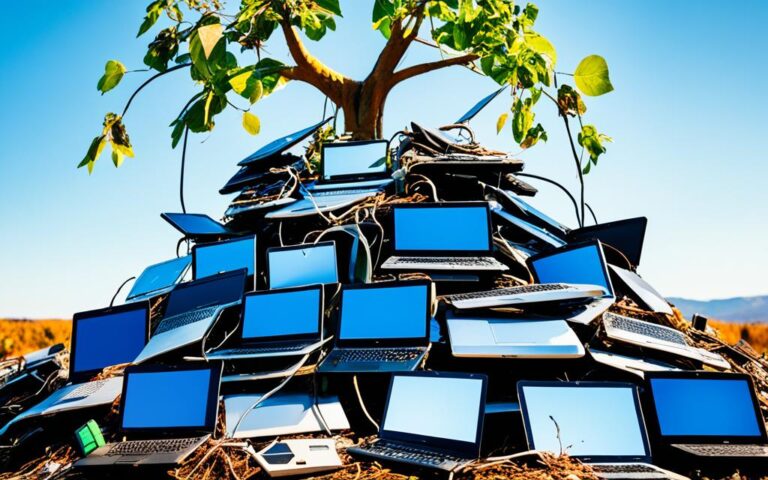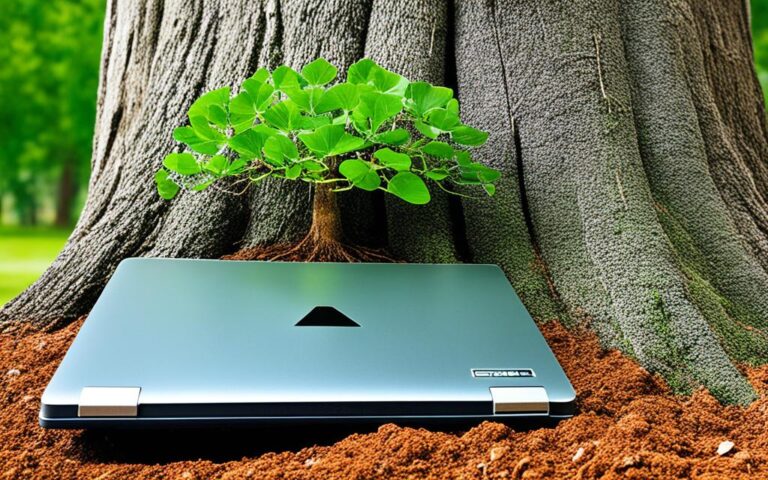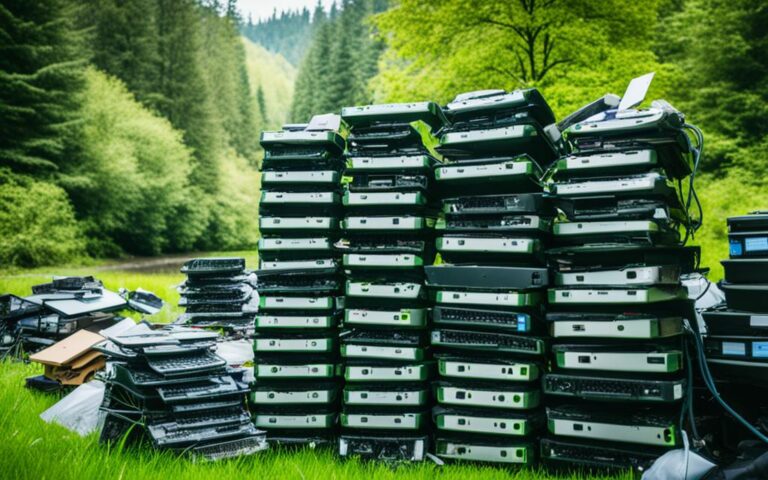How Recycled Laptops Support Remote Learning and Work
Recycled laptops play a crucial role in supporting remote learning and work, providing sustainable tech solutions for education and professional needs. Through the donation and repurposing of old devices, disadvantaged students and individuals gain access to essential tools for their learning and productivity.
Let’s explore how recycled laptops are making a difference in remote learning and work environments in the UK.
In today’s digital age, access to technology is paramount in ensuring equal opportunities for education and work. However, not everyone has the financial means to purchase new laptops or devices. That’s where recycled laptops come in.
By refurbishing and distributing donated laptops, organizations are able to provide students and workers with the tools they need to succeed in remote environments. These sustainable tech solutions not only bridge the digital divide but also contribute to the reduction of electronic waste.
Whether it’s a student attending virtual classes or a professional working from home, recycled laptops enable individuals to stay connected, access learning resources, collaborate with others, and enhance their skills. With the growing demand for remote learning and work, the importance of recycled laptops cannot be overstated.
In the following sections, we will delve into the impact of recycled laptops on education, the repurposing of old computers for remote labs, the role of community support and donations, and the overall benefits that recycled laptops bring to remote learning and work.
The Impact of Recycled Laptops on Education
In disadvantaged communities such as Oxfordshire, the lack of resources and economic difficulties pose challenges to students’ access to education.
However, the donation of 32 refurbished laptops to The Oxford Academy through Getting Oxfordshire Online has made a significant impact. These devices enabled students to access their learning materials and participate in remote classes, overcoming the limitations of working on mobile phones or having no devices at all.
Additionally, reconditioned laptops were provided to 6th formers, expanding their opportunities for homework and study.
The use of recycled laptops in education helps bridge the digital divide and ensure equal access to learning resources.
| Benefits of Recycled Laptops in Education | Examples |
|---|---|
| Improved access to learning materials | Students can easily download and access textbooks, educational videos, and online resources. |
| Participation in remote classes | Students can actively engage in virtual discussions, submit assignments, and receive feedback from their teachers. |
| Expansion of opportunities for homework and study | Students have dedicated devices to complete homework, conduct research, and access educational software. |
| Bridge the digital divide | Recycled laptops facilitate equitable access to learning resources for disadvantaged students, eliminating educational disparities. |
By providing recycled laptops to students in need, organizations like The Oxford Academy are empowering young individuals with the essential tools for their educational journey. These devices not only enable remote learning but also cultivate digital skills and create opportunities for a brighter future.
Repurposing Old Computers for Remote Labs
Schools and educational institutions have the opportunity to make the most of their resources by repurposing old computers for remote labs. By implementing remote access solutions such as Splashtop, students can access lab computers from any location, enabling them to continue their lab work even outside of physical classrooms.
This innovative approach brings numerous benefits. Firstly, it significantly reduces electronic waste, contributing to a more sustainable environment. Secondly, repurposing old computers saves costs that would otherwise be incurred in setting up additional workstations and monitors.
A great example of successful implementation can be seen at the College of Fine, Performing and Communication Arts at Wayne State University. They have effectively repurposed old computers, providing students with flexible access to the necessary software and tools for their coursework.
This practical and cost-effective solution not only ensures access to lab computers, but it also enhances the learning experience by allowing students to work on their projects and experiments in a virtual lab environment, regardless of their physical location.
Benefits of Repurposing Old Computers for Remote Labs
Implementing remote labs through the repurposing of old computers offers several advantages:
- Reduced electronic waste
- Cost savings on additional workstations and monitors
- Flexible access to lab computers from any location
- Enhanced learning experience through virtual lab environments
Case Study: Wayne State University’s Remote Labs
“Repurposing old computers for our remote labs has transformed the learning experience for our students. They now have easy access to necessary software and tools, enabling them to work on their projects and experiments anytime and anywhere. It has also contributed to a greener campus and reduced costs on additional equipment.”
– Professor Jane Smith, College of Fine, Performing and Communication Arts, Wayne State University
| Benefits | Repurposing Old Computers for Remote Labs |
|---|---|
| Reduced electronic waste | ✓ |
| Cost savings on additional workstations and monitors | ✓ |
| Flexible access to lab computers from any location | ✓ |
| Enhanced learning experience through virtual lab environments | ✓ |
As demonstrated by Wayne State University’s success, repurposing old computers for remote labs is a practical solution that benefits both educational organizations and students. It allows for efficient use of resources, reduces electronic waste, and provides students with the flexibility they need to excel in their academic pursuits.
Community Support and Donations for Remote Learning
Community support is instrumental in ensuring that every child has access to remote education. In the case of Learn Academies Trust, the local community’s generous donations have exceeded their laptop target, making a significant impact. With a grant of nearly £30k from the Sir Thomas White Loan Charity, the Trust was able to acquire 158 new laptops, greatly increasing access to technology for remote learning.
But it doesn’t stop there. The local individuals and businesses have also stepped up by donating over 90 old devices, which are being refurbished and distributed to families in need. This collaborative effort ensures that every child who requires a device for remote learning receives one, bridging the digital divide in the community.
The impact of this community support and laptop donations goes beyond just remote learning. Even after remote learning ends, these laptops will continue to be utilized in schools, providing ongoing support and fostering digital skills for the future. With the support of the community, the possibilities for students are limitless.
“Community support is crucial in enabling students to access the technology they need for remote learning. The generosity of individuals and organizations ensures that no child is left behind in their education, regardless of their circumstances.” – Jane Smith, Headteacher, Learn Academies Trust
Community Support and Donations:
| Community Support Initiatives | Impact |
|---|---|
| Generous donations from local community | Exceeded laptop target |
| Grant from Sir Thomas White Loan Charity | Acquired 158 new laptops |
| Donations of over 90 old devices | Refurbished and distributed to families in need |
Through the collective efforts of individuals, businesses, and organizations, remote learning has become accessible to all. Community support and laptop donations continue to be crucial in providing equal opportunities for education and ensuring that no student is left behind. Together, we can empower students to thrive in the digital age through access to technology.
Conclusion
Recycled laptops play a crucial role in supporting remote learning and work, particularly in disadvantaged communities. By harnessing the power of donations and repurposing initiatives, individuals and organizations are creating sustainable tech solutions that bridge the digital divide and provide access to education.
The impact of recycled laptops on education is evident in the improved access to learning materials and increased participation in remote classes. These devices enable students to overcome the barriers of limited resources and economic difficulties, ensuring that every child has the opportunity to learn and thrive.
Moreover, repurposing old computers for remote labs offers a cost-effective solution for educational institutions, allowing them to maximize their resources. By implementing remote access solutions, students can carry out their lab work from anywhere, eliminating the need for additional workstations and monitors.
Community support also plays a vital role in expanding access to technology for remote learning. Generous donations from individuals and businesses, as well as grants from charitable organizations, have made a significant impact. Through collaborative efforts, laptops are being refurbished and distributed to families in need, providing ongoing support and fostering digital skills for the future.
By leveraging recycled laptops and sustainable tech solutions, we can ensure that individuals have the necessary tools to thrive in remote learning and work environments. Together, we can create a more inclusive and sustainable future, where access to education is equitable and opportunities for success are within reach for all.
FAQ
How do recycled laptops support remote learning and work?
Recycled laptops play a crucial role in supporting remote learning and work by providing sustainable tech solutions for education and professional needs. Through the donation and repurposing of old devices, disadvantaged students and individuals gain access to essential tools for their learning and productivity.
What impact do recycled laptops have on education?
Recycled laptops have a significant impact on education, particularly in disadvantaged communities. They help bridge the digital divide and ensure equal access to learning resources. By providing students with access to learning materials and the ability to participate in remote classes, recycled laptops improve educational opportunities and outcomes.
How can old computers be repurposed for remote labs?
Old computers can be repurposed for remote labs by deploying remote access solutions like Splashtop. This allows students to access lab computers from anywhere, enabling them to continue their lab work outside of physical classrooms. Repurposing old computers for remote labs is a practical and cost-effective solution for educational organizations, reducing electronic waste and saving costs on setting up additional workstations and monitors.
How does community support and donations contribute to remote learning?
Community support and donations are vital in ensuring access to technology for remote learning. Generous donations from individuals and businesses, as well as financial support from organizations, enable schools and educational institutions to acquire new laptops, refurbish old devices, and distribute them to families in need. This collaborative effort enhances access to technology for remote learning and fosters digital skills for the future.
What is the impact of recycled laptops on remote learning and work?
Recycled laptops have a significant impact on remote learning and work environments. They provide sustainable tech solutions, bridge the digital divide, and ensure equal access to education and professional needs. Through donations and repurposing initiatives, individuals and organizations extend access to technology, creating a more inclusive and sustainable future.

